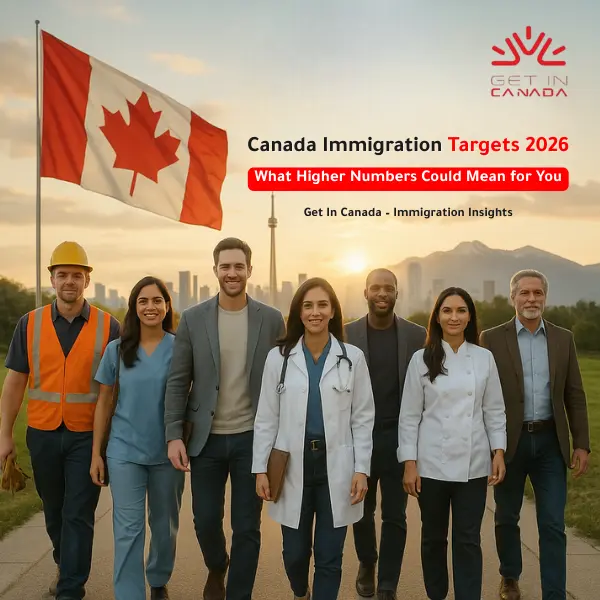Top 10 Essential Tips for Your First Week in Canada

Your First Week in Canada sets the stage for a successful settlement by ensuring critical tasks—immigration, housing, healthcare, banking, and community connections—are completed efficiently. This guide offers essential tips in structured paragraphs and bullet lists, with embedded high‑quality references to official sources, to help you navigate those crucial first seven days.
1. Arriving and Completing Immigration Formalities
Upon landing, present your passport, visa or eTA, and Confirmation of Permanent Residence (if applicable) to Canada Border Services Agency (CBSA) officers for customs and immigration processing [1]. During this step, you will receive or download the official Welcome to Canada guide, which explains how to access settlement services, find housing, and apply for benefits .Within your first week in Canada, apply for a Social Insurance Number (SIN) online or in person at a Service Canada Centre; this number is mandatory for employment and government programs and carries no application fee.
Find out if you are eligible to get in Canada →
2. Securing Temporary Accommodation
In your first week in Canada, arranging short‑term lodging provides a stable base for completing paperwork and job searches [4]. Options include furnished Airbnb rentals, budget hostels, and hotels bookable through recognized platforms like Booking.com or Expedia. Additionally, many immigrant‑serving agencies list free or subsidized temporary housing—search the CICIC directory for local referrals.
3. Obtaining Provincial Health Coverage
Health coverage must be initiated during your first week in Canada to ensure medical needs are met. In Ontario, apply for the Ontario Health Insurance Plan (OHIP) online or at a ServiceOntario centre; coverage starts after a three‑month waiting period. In Alberta, register with the Alberta Health Care Insurance Plan (AHCIP) at a registry agent, providing proof of residency and identity. Newcomers may also consider interim private insurance from providers such as Manulife or Sun Life if coverage is delayed [10].
4. Opening a Bank Account and Building Credit
A Canadian bank account is essential in your first week in Canada for rent, utilities, and payroll . Major institutions—RBC, TD Canada Trust, Scotiabank, and CIBC—offer newcomer banking packages with free monthly banking for six to twelve months. After account setup, apply for a secured credit card to begin building credit history and set up online banking to automate bill payments.
Find out if you are eligible to get in Canada →
5. Activating Communication Services
Staying connected helps you schedule appointments and maintain social ties during your first week in Canada. Purchase a prepaid SIM from national carriers (Rogers, Bell, Telus) or budget providers (Lucky Mobile, Chatr). For home Internet, compare plans via the CRTC’s broadband portal—aim for at least 50 Mbps download and unlimited data [14]. Finally, locate your nearest Canada Post outlet using their Find a Post Office tool to set up mail forwarding and collect mail.
6. Learning Local Transit Systems
Familiarity with public transportation is vital in your first week in Canada [16]. In Toronto, obtain and load a PRESTO card at subway stations or retail outlets; tap in and out on TTC vehicles for seamless travel. In Vancouver, register for a Compass Card, available at SkyTrain stations and select retailers [18]. Similar reloadable fare cards exist in other provinces—download the respective transit app for schedules and real‑time updates.
7. Accessing Groceries and Essentials
Securing food and household items quickly is crucial during your first week in Canada. Major supermarkets—Loblaws, Metro, Sobeys, Real Canadian Superstore—offer weekly specials and loyalty savings. Discount grocers like No Frills and Food Basics provide budget‑friendly staples, while dollar stores (e.g., Dollarama) carry affordable household goods. Ethnic markets often stock familiar products at competitive prices.
Find out if you are eligible to get in Canada →
8. Connecting with Settlement Agencies and Language Training
Settlement services and language programs accelerate your integration within the first week in Canada. YMCA Newcomer Information Centres offer orientation on employment, education, and health services [21]. Enroll in the Language Instruction for Newcomers to Canada (LINC) program for free ESL or French classes funded by IRCC [22]. Public libraries and community centres also host newcomer meetups and cultural events—ideal for expanding your social network.
9. Starting Your Job or Education Search
With foundations set, begin exploring employment and education opportunities. Use the Job Bank Canada and professional networks like LinkedIn. Newcomer‑focused employment services, such as ACCES Employment, provide resume workshops and mentorship. If pursuing further education, contact post‑secondary institutions for credential assessments and admission processes.
10. Planning Beyond Your First Week
End your first week in Canada by outlining goals for the coming months: secure long‑term housing, finalize health and banking setups, continue language or skills training, and grow your network through volunteering or professional associations. Refer to the IRCC “What You Must Do After You Arrive” guide for a comprehensive checklist of settlement tasks.
Read Also: What Are the Best Places to Live in Canada











